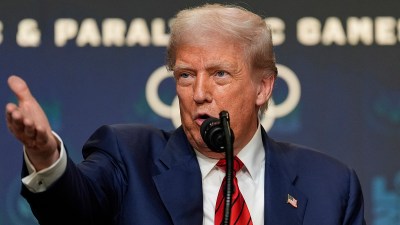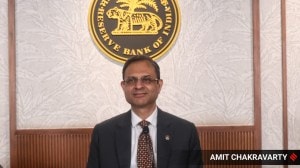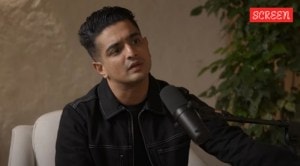HC rejects IIT-Bombay’s appeal against payment of gratuity to 3 workers
A single-judge bench of Justice Sandeep V Marne on October 4 passed a verdict on plea by IIT-Bombay against the authority’s decision of January, 2022, in favour of Tanaji Babaji Lad, Dadarao Tanaji Ingle and Garase.
 The Controlling Authority, after considering rival contentions, held that the institute was liable to pay gratuity to the three workers. (File photo)
The Controlling Authority, after considering rival contentions, held that the institute was liable to pay gratuity to the three workers. (File photo)The Bombay High Court on Friday rejected an appeal by the Indian Institute of Technology-Bombay against the orders of the Assistant Labour Commissioner (Central), which acted as Controlling Authority that directed the institute to pay gratuity to three contract workers under the Payment of Gratuity Act.
Raman Sukar Garase, one of the three workers who were granted relief by the authority, allegedly died by suicide in May this year, due to his long drawn legal battle for gratuity for contract workers, which he had been fighting for since his retirement in 2018 after 39 years of contractual service as a gardener.
It was alleged that he died by suicide due to non-availability of funds to take care of medical expenses.
A single-judge bench of Justice Sandeep V Marne on October 4 passed a verdict on plea by IIT-Bombay against the authority’s decision of January, 2022, in favour of Tanaji Babaji Lad, Dadarao Tanaji Ingle and Garase.
The orders passed by the Controlling Authority were upheld by the Appellate Authority and Deputy Chief Labour Commissioner (Central), though orders dated April 3, 2024 and same were also challenged by the institute.
The Controlling Authority, after considering rival contentions, held that the institute was liable to pay gratuity to the three and had directed the IIT-Bombay to pay Rs 1.89 lakh to Lad, Rs 2.35 lakh to Ingale and Rs 4.28 lakh to Garase, along with 10 per cent annual interest on the amounts accrued from their retirement dates.
Advocate Arsh Mishra for IIT-Bombay argued that the authorities failed to consider that there was no employer-employee relationship between the institute and the three contractual workers as they were employees of the contractor, who alone was responsible for payment of gratuity. The institute did not control or supervise them, Mishra argued. He added that the authorities erred in holding that the director of IIT-Bombay had ultimate control over affairs of establishment.
Senior advocate Gayatri Singh and advocate Sudha Bharadwaj for the respondent workers argued that they had been working with the institute for a considerable period of time through several contractors since 1999. Singh argued that while Lad and Ingale had already withdrawn the principal amount of gratuity from the Appellate authority,
Garase’s widow was in dire need of funds and she should be allowed to withdraw the dues.
Justice Marne noted that if respondent workers were made to “run behind multiple contractors from security gratuity from each of them, the same would not only result in multiplicity of proceedings but would also frustrate the very purpose of creating swift and speedy remedy before the Controlling Authority for payment of gratuity”.
The judge noted that it was difficult to hold that IIT-Bombay had absolutely no control over them over the years and it clearly appeared to be “an arrangement of merely routing of salaries through contractors”.
The bench added that as per work order issued to last contractor M/s Moosa Services Company, there was no specific condition for payment of gratuity to the contractor, despite there being mandate for contractor to Provident Fund and ESIC contribution.
Finding no error in orders passed by Authorities, the bench permitted legal heirs of Garase to withdraw the entire amount of gratuity deposited before the appellate authority and directed the IIT-Bombay to pay amount of interest awarded by the authorities to respondents or their legal heirs within two months.












